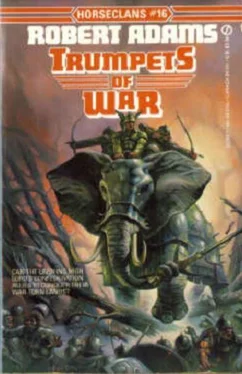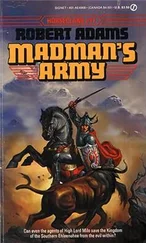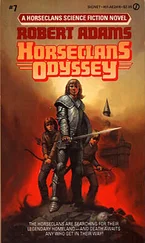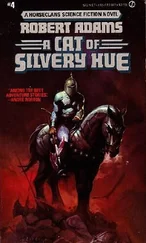“My lord Grahvos,” said Captain Thoheeks Portos gravely, “this is Komees Klaios Kelaios, who presently holds the city. He avers that he has sent no less than six messengers to Mehseepolis to bear messages to Council, but that none ever have returned, and ...”
Seating himself near a glowing brazier, his booted legs stretched out before him, Grahvos said, “Tell it again, Lord Komees, from the very beginning, please.”
While the city-lord talked, Grahvos studied him carefully. He saw a man of about average height and medium build, heavily scarred about the head, face and hands, scarred in ways that the warrior thoheeks had seen often before. His age could have been anywhere between thirty and forty years, but if the former, then he was prematurely aging, for he bore the lines and wrinkles of care and worry. Save for a severe limp, he bore himself well and expressed himself even better, clearly born and bred a gentleman of the old, Ehleen strain, akath’ahrohs, and no mistaking the fact.
Grahvos liked what he saw before him far better with every passing moment of time. Should Hahkmukos live to twice or three times his current years, he would never, could never be of the like of this one. He put the aging warrior much in mind of his own sons, all dead in the long-lasting disturbances which had rent and racked the lands during the two decades now past.
When, finally, Komees Klaios ceased to speak, Grahvos turned to Thoheeks Portos and asked baldly, “He told you the same story before I arrived, then?”
“Yes, my lord,” replied the officer. “It was the same tale, though the second recounting was in more depth and detail.”
Before he questioned the next officer, Captain Sub-chief Rahb Vawn, he told the city-lord, “Lord Komees, the officer with the unusual armor there is a Horseclansman from Kehnooryos Ehlahs. Like many of his ilk, he owns the proven ability to read minds.”
Then, of Captain Rahb, he asked, “Did helie, Captain?”
The short, slender, reddish-blond man shook his head. “Not once, Chief Grahvos; all that he told you and us before was the plain, simple truth. Were it all up to me, I’d take his oaths and march back to Mehseepolis, for his mind tells me that he would find it as hard tolie as that other one does to tell the truth. You asked, Lord Chief, I have answered.”
Grahvos steepled his fingers and rested his blunt chin atop the forefingertips, staring hard at a point where a sidewall of the pavilion joined the roof. “Six noble messengers and their retainers ride out of Ahndropolis bound for Mehseepolis in a span of fifteen or sixteen months. Men trained and experienced in arms, Lord Komees”! Yes, of course, in these times, else they’d not have still been alive to undertake such a ride.
“One, maybe even two of the earlier ones, might have fallen prey to bandit bands, but most of those were eradicated by our army some full year agone, so what chanced with the other four, eh? It does give one to pause and wonder, gentlemen.”
He turned back to Portos and said, “Captain, send for Hahkmukos. I want the distinguished Sub-chief Vawn to delve into that cesspool mind when he hears the testimony of Komees Klaios, for Hahkmukos is the only person of whom I can think who might have thought he would gain from buying off or waylaying messengers from Ahndropolis.”
An officer was dispatched, but he returned alone. “My lords, the thoheeks refused to speak with me. He is in his tent, but he sent word by way of one of his guards that he did not care to speak with Komees Klaios and that all that he wished to see of him is his severed head.”
Portos growled like a lion, and before he could speak, Grahvos had ordered, “Lieutenant, assemble a detachment double the strength of Lord Hahkmukos’ guard and return with them to his tent. You are to go into his tent this time, and if any man tries to stop you, you and your detachment bear my witnessed orders to put steel into them.
“You are to tell Lord Hahkmukos that he is to come here immediately, escorted by you. If he still will not, you have my leave to have him dragged here, just as he is.”
As the officer was saluting, Sub-chief Rahb, grinning maliciously, commented, “It might be wise, Lieutenant, to take along a crowbar, so’s to pry the bastard from off his catamite.”
As the officer departed, Rahb Vawn commented to no one in particular, “Long’s I’ve lived among you Ehleenee, and that’s all of my life, I’ve never been able to fathom your kind’s fascination for little slave boys; you can’t get children on them and so it seems like such a waste.”
Thoheeks Grahvos shrugged. “There has always been a significant minority of our race here who have declared that women exist only for breeding purposes, boys and younger men for sexual pleasure. I, personally, never subscribed to the philosophy, but some of my peers back at Mehseepolis do, Captain Rahb.”
Thoheeks Portos said gravely, “I think that that subculture dates back to the days of the conquest of this land, before the conquerors had sent back to their homelands for women of their blood. They did not wish to pollute the racial strain through fraternization with the women of the conquered, some of them, so they made do with each other. I dabbled a bit in that direction when I was younger and still held my original lands, but no more, for it truly is a waste of precious seed for a man who needs to breed heirs and is getting no younger. But, even so, when I did so indulge myself, it was invariably with men not much younger thanmyself, not with the barely pubescent children that Hahkmukos keeps.”
Captain Opokomees Gregorios of Dahnpolis put in, “It’s rarer in Karaleenos than here or in Kehnooryos Ehlahs, and, I have been given to understand, rarer still in Kehnooryos Mahkedohnya. Of course, up in Karaleenos, we Ehleenoee have interbred with the indigenes from the beginning, or almost; you will find damned fewkath’ahrohsee among us.
“And, you know, my lords, although one might expect just the very opposite, I had a drinking bout and some very long conversations with one of Lord Alekhsahndros’ bireme officers up on the Lumbuh River during the late unpleasantness and he averred that such conduct is looked down upon in the Pirate Isles and is, therefore, almost an unheard-of thing, for all that there exist there far more men than women.”
Sub-chief Rahb nodded. “Yes, true, women are scarce there, but then the Pirate Isles folk practice polyandry—each woman having two, three, four or more husbands at the same time, reckoning descent through her, as too do the Horseclanners, rather than through the sire, like most of you Ehleenee.”
“Is it true, then?” asked Thoheeks Grahvos wonderingly. “Why, that is passing strange. It seems completely at odds to the very nature of men to willingly share one’s wife with other men. Legal adultery is what it sounds like to me.”
“Even so, my lord Grahvos,” said Thoheeks Portos, “we may very well have to promulgate something of the sort in our realms, are we to see a rapid repopulation of these lands of ours, wherein far too many of the males still extant after so many years of warring are either too young or too old or, like Hahkmukos, just not inclined in the direction of breeding.”
Rahb Vawn grinned broadly. “Lord Portos, I’ve got the answer for you. Just turn us Horseclanners loose down here; we’ll ride from one duchy to the next one getting younguns on any poor Ehleenee woman as is willing. We’ll charge you lords not a thing other than our food and bait for our horses, either; it’s the very least we Horseclanners can do for to help you out, down here.”
The assembled officers, nobles and heralds still were
laughing when the guard-lieutenant tramped in with a dark-visaged and very enraged Thoheeks -designate Hahkmukos in tow, followed by two grinning guardsmen with leveled spears held at waist level, their glittering points a bit downslanted to threaten Hahkmukos’ rump area.
Читать дальше












